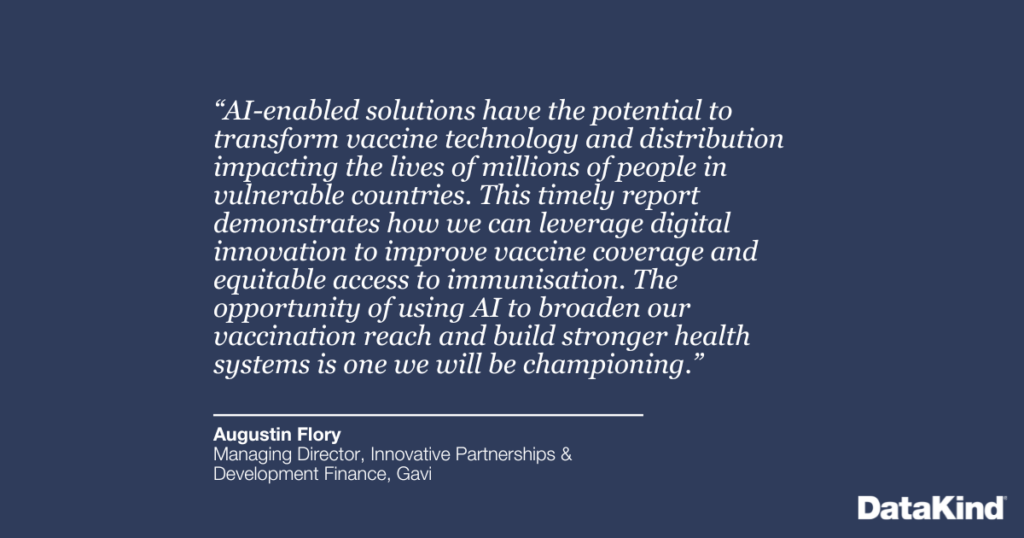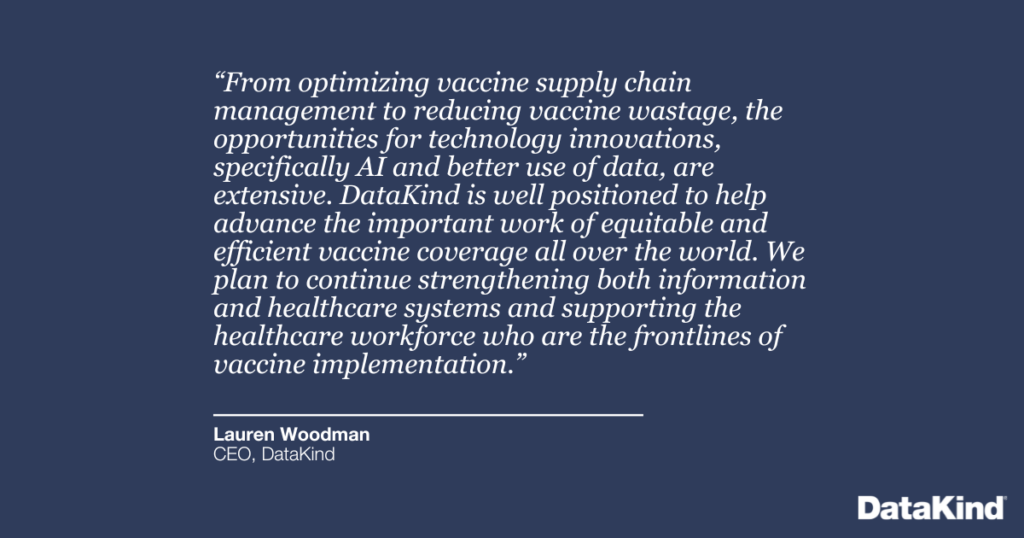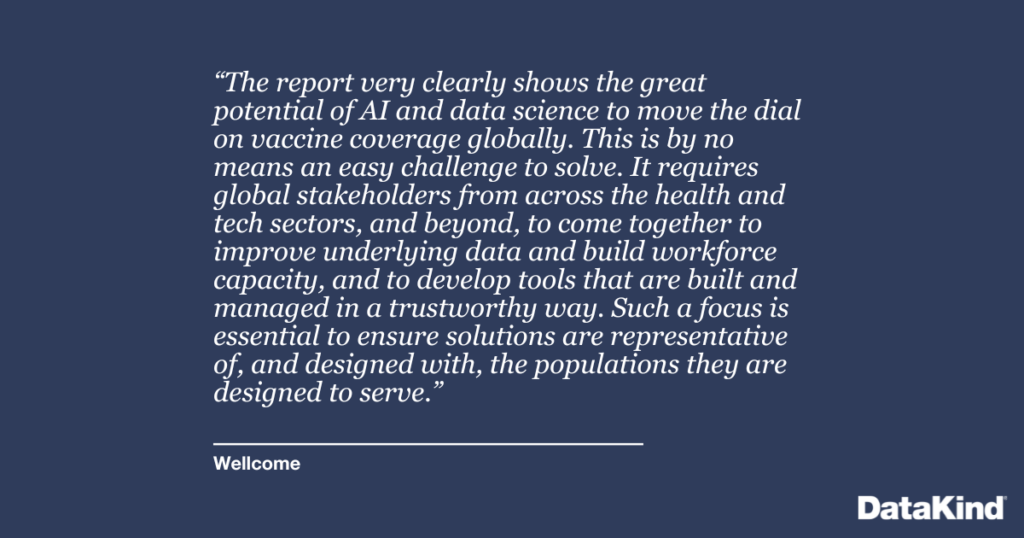DataKind and Gavi, the Vaccine Alliance (Gavi) released a report on leveraging AI and data science to enhance vaccine coverage and address access disparities, which persist despite global advancements in vaccine technology and distribution. The outcome of an almost year-long partnership with Gavi, and funded by Wellcome, the report provides a comprehensive look into the present digital landscape and identifies impactful solutions, key gaps, and priorities for investment. The report’s findings offer a roadmap for leveraging digital innovation to achieve universal health coverage and vaccination coverage targets.
Factors, such as inadequate healthcare resources, a shortage of trained personnel, gender-related barriers, and broader global issues, like conflict and climate change, all contribute to challenges in vaccine access and equitable deployment. The COVID-19 pandemic exacerbated these issues, resulting in over 20.5 million under-vaccinated children and 10.2 million zero-dose children – children who have never received any vaccines.

Digital innovations, such as AI and data science tools, have the potential to help overcome these challenges, enhancing vaccine equity and efficiency, and have ignited global investment in digital technologies. DataKind and Gavi’s strategic partnership landscaped AI and data science applications across various stages of the vaccine deployment life cycle, identifying impactful solutions, key gaps, and priorities for investment.
Stakeholder insights were provided by experts across the Gavi Alliance, including UNICEF and the World Health Organization, and the Innovation for Uptake, Scale and Equity in Immunization (INFUSE) Pacesetters, including GiftedMom, Khushi Baby, Nexleaf Analytics, Novel-T, Parsyl, and Simprints.
The report provides a comprehensive guide for a global audience, offering insights into the present digital landscape and the potential of AI and data science in vaccine deployment. Covering nine interconnected components of the vaccine deployment lifecycle (see Figure 1), the report showcases the applications, limitations, and ethical considerations of these technologies. There is immense potential of AI and data science techniques throughout; from optimizing vaccine supply chain management to reducing vaccine wastage, the opportunities are extensive.
The report identifies a clear need to focus investments on two cross-cutting areas: improving data quality and fostering skills development within the health workforce, which would impact four of the nine components of the vaccine deployment lifecycle (see Figure 2). To simultaneously increase the availability and quality of immunization data and support health workforce management, a multi-dimensional approach is recommended:
- Improve the data capturing process by preventing quality issues at the data collection stage.
- Provide flexible tools for data quality control through the use of dedicated quality assurance tools.
- Support the data literacy and operational aspects of the health workforce by leveraging generative AI-based training applications.

To demonstrate how data science and AI can be leveraged in two key areas, DataKind developed two prototypes for Gavi.
The first prototype uses the Data Observation Toolkit (DOT), a data integrity software developed by DataKind, and a digital public good, to conduct automated data quality checks on immunization data and identify issues for remediation. DOT ensures data quality and integrity through automated checks, fostering increased trust in data and supporting informed decision-making on vaccine coverage.
The second prototype is a proof-of-concept training tool for the vaccine health workforce, leveraging large language model (LLM) technology. The prototype automatically generates question and answer tests, based on pre-approved training resources, and streamlines information retrieval through text prompts. This solution complements in-person or online training for health workers to provide a range of benefits, including ensuring efficient and equitable service delivery and ultimately addressing coverage gaps.
Unlocking the full potential of AI and data science solutions in vaccine deployment requires collaboration, sustainability, and targeted investment from funders. This calls for collective initiatives involving subject matter experts, such as community health workers, alongside communities, policymakers, and funders to address challenges with suitable solutions.
Prioritizing sustainable and scalable solutions, with an emphasis on continuous learning, local empowerment, and a human-centered design approach, is crucial for demonstrating value and impact. Both public and private investment are essential for sustainable solutions at scale, with funders playing a pivotal role in fostering partnerships across public, private, and philanthropic sectors to maximize the use of AI and data science in vaccine deployment.

The report’s findings offer a roadmap for leveraging digital innovation to achieve universal health coverage and vaccination coverage targets. Through collaborative efforts and strategic investments, stakeholders can usher in a new era of equitable and efficient immunization strategies, safeguarding the health of communities worldwide.
Informed by these findings and key considerations, DataKind plans to further develop and scale the prototype solutions for Gavi and stakeholders across the Gavi Alliance and INFUSE Pacesetters with additional investment.
Image above courtesy of Gavi.
Join the DataKind movement.
- Interested in supporting our work? Donate here.
- Interested in sponsoring a project? Partner with us.
- Interested in volunteering with DataKind? Look no further.
- Interested in working at DataKind? We’re hiring!
- Interested in submitting a project? Go for it!



